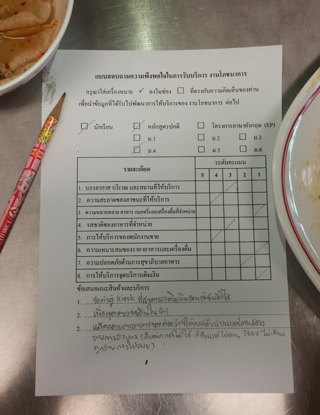PAQ may refer to;
PAQ may refer to;
CSA may refer to:
AAA, Triple A, or Triple-A is a three-letter initialism or abbreviation which may refer to:
WP or wp may refer to:
CA most often refers to:
ST, St, or St. may refer to:
BN, Bn or bn may refer to:
Fo or FO may refer to:
TL or Tl may refer to:

A questionnaire is a research instrument that consists of a set of questions for the purpose of gathering information from respondents through survey or statistical study. A research questionnaire is typically a mix of close-ended questions and open-ended questions. Open-ended, long-term questions offer the respondent the ability to elaborate on their thoughts. The Research questionnaire was developed by the Statistical Society of London in 1838.
PAQ is a series of lossless data compression archivers that have gone through collaborative development to top rankings on several benchmarks measuring compression ratio. Specialized versions of PAQ have won the Hutter Prize and the Calgary Challenge. PAQ is free software distributed under the GNU General Public License.
PBA may refer to:
Job analysis is a family of procedures to identify the content of a job in terms of the activities it involves in addition to the attributes or requirements necessary to perform those activities. Job analysis provides information to organizations that helps them determine which employees are best fit for specific jobs.
ASQ can refer to several things:
KSP may refer to:
HAS or Has may refer to:
TNA may refer to:
Region is a term used by contemporary geographers to describe an area of land or water that is part of a larger whole.
Individual psychological assessment (IPA) is a tool used by organizations to make decisions on employment. IPA allows employers to evaluate and maintain potential candidates for hiring, promotion, and development by using a series of job analysis instruments such as position analysis questionnaires (PAQ), occupational analysis inventory (OAI), and functional job analysis (FJA). These instruments allow the assessor to develop valid measures of intelligence, personality tests, and a range of other factors as means to determine selection and promotion decisions. Personality and cognitive ability are good predictors of performance. Emotional Intelligence helps individuals navigate through challenging organizational and interpersonal encounters. Since individual differences have a long history in explaining human behavior and the different ways in which individuals respond to similar events and circumstances, these factors allow the organization to determine if an applicant has the competence to effectively and successfully do the work that the job requires. These assessments are administered throughout organizations in different forms, but they share one common goal in the selection process, and that is the right candidate for the job.
The Personal Attributes Questionnaire (PAQ) is a personality test measuring two scales "instrumentality" and "expressivity", commonly taken to be masculinity and femininity, respectively. It is one of the most commonly used measures of gender identity, second only to the Bem Sex-Role Inventory.
Position analysis questionnaire (PAQ) is a structured job analysis questionnaire that evaluates the skill level and basic characteristics required of workers to successfully execute the tasks, duties, and responsibilities of a job. The PAQ was developed at Purdue University by McCormick, E.J., & Jeanneret, and Mecham in 1969. The PAQ method involves a series of detailed questioning to produce many analysis reports. This method is widely used within industrial and organizational psychology, individual psychological assessment and human resource departments, and can be easily administered by any individual trained in job analysis.